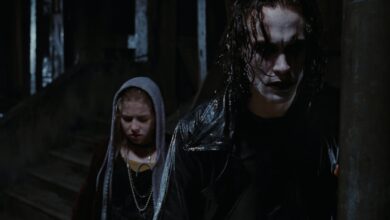Maria (1987)

Maria (1987)
A Quietly Powerful Story of Courage and Self-Discovery
Maria (1987) is a beautifully understated drama that draws viewers into a deeply personal story of resilience, tradition, and the quiet strength of a woman searching for her place in the world. Set in a small, tightly-knit community, the film paints a vivid portrait of a young woman navigating the subtle, yet powerful forces that shape her identity.

Maria, portrayed with remarkable sensitivity, is not a loud or rebellious character. Instead, her journey unfolds through silences, glances, and small acts of defiance that speak volumes. Surrounded by customs and expectations, she begins to question the life laid out for her — not in anger, but with a quiet yearning for something more meaningful and true.

The cinematography is soft and poetic, using natural light and carefully framed scenes to reflect Maria’s inner world. Every shot feels intentional, almost like a painting — simple on the surface, yet layered with emotion. The score is minimal, allowing the story to breathe and unfold at its own pace.
Director’s storytelling is gentle yet assured, never pushing too hard, but allowing the character’s emotional evolution to resonate. Maria doesn’t rely on grand gestures or dramatic turns. Instead, it captures the everyday moments that slowly build into a powerful transformation — one rooted in self-respect, inner clarity, and quiet determination.

By the film’s end, Maria’s journey feels deeply earned. It’s a story that lingers — not for what it shouts, but for what it whispers. A meditation on choice, belonging, and the strength it takes to live honestly, Maria (1987) is a timeless tale that still speaks with quiet relevance today.





